Project-based learning is a dynamic multidisciplinary approach in which students actively explore real-world problems or challenges. As students engage in the work of a project they follow a process that begins with inquiry or a driving question presented by the teacher and based on student interest. Inquiry leads to deeper learning, not just related to academic content, but related to real-world applications and encourages meaningful connections across content areas. Guided by their teachers, students work collaboratively for an extended period of time to solve the problem or to answer a complex question. Greater student engagement and a deeper understanding of the content is evident during the PBL process. 21st Century skills such as critical thinking, communication, collaboration, and creativity are essential components for success in a PBL classroom.
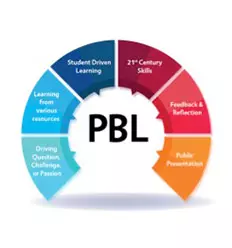
The Hum of the Bees is the Voice of the Garden -Elizabeth Lawrence, American Gardener
In culmination of our year-long PBL study on bees, Second Grade had the opportunity to visit a real, working honey bee hive. The students were able to call upon their knowledge from months of research and apply it to the experience. The beekeeper, Ms. Jill, is an educational volunteer for the Three Rivers Beekeepers Association. After visiting our class this past fall, she gave us a personal invitation to her home. The students wore protective beekeeper gear (hats with veils) and watched as Ms. Jill lit the smoker which was filled with pine needles, pine cones, and cotton. She then led us to the bee hive and calmed the bees with the smoke. As the hive was opened, we witnessed the honey bees busy at work! At first, Ms. Jill scraped off the excess wax from the frame as bees can get their "little feet stuck", we were informed. Our class saw a few nurse bees feeding the larvae as they were head down inside the cell. We then saw a cluster of larvae not yet capped waiting to be fed. Some lighter capped cells were filled with honey and pollen. Others that were capped a darker yellow in color had larvae inside. We quickly realized that the bees were not interested in us so much, but mostly about their duties at the hive. It was the most interesting, valuable, and interactive field trip experience that we will always remember! Not only did this endeavor solidify the importance of planting a successful pollinator garden at school or at home, but several students shared how they want to be beekeepers someday to further help bees and the planet we all share. – Mrs. Blankenburg
Student quotes about the trip:
John - "My favorite part was seeing the smoker for the bees. I had learned that most beekeepers used lavender and dried paper. Ms. Jill used cotton, pine needles, and pieces of pine cones."
Liam - "I loved every single thing! It was very interesting how babies (larvae) don't get capped right away. I definitely think that I want to be a beekeeper one day."

Gianna - "My favorite part was when three bees landed on me! First I felt scared, then I was excited! I was a little sad when they left because I wanted to watch them more."
Akhil - "My favorite part was holding the frame at the end. I liked learning that Ms. Jill needs to scrape the extra wax so bees don't get stuck."
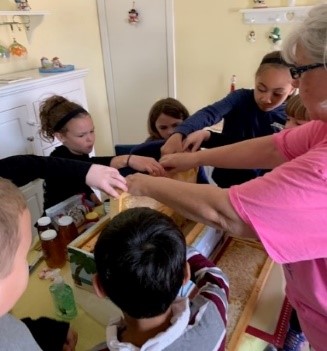
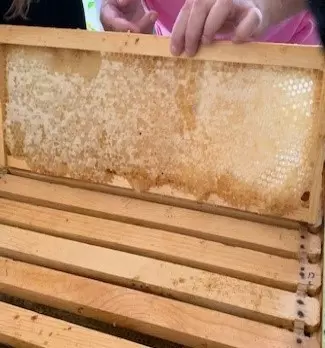
Jaelynn - "My favorite part was tasting the honey because I've never tried it before."
Kieran - "Trying the honey was AMAZING! I found it fascinating that bees can make wax randomly."
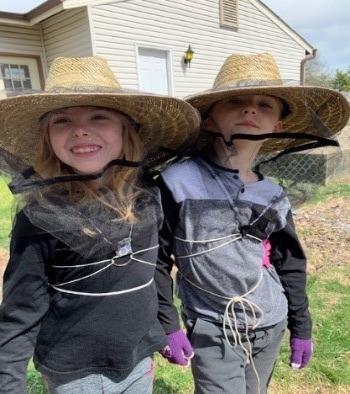
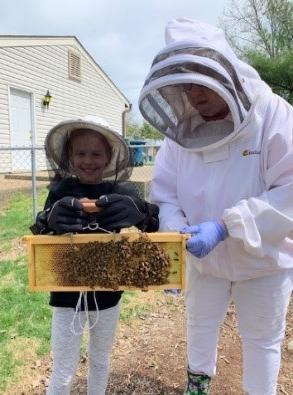
Amelia - "One of my favorite parts was seeing the amazing plants and beautiful backyard that Ms. Jill had for her bees to get pollen."
Jack - "What was my favorite part? Everything. I liked seeing the nurse bees doing their job because it was very interesting.”